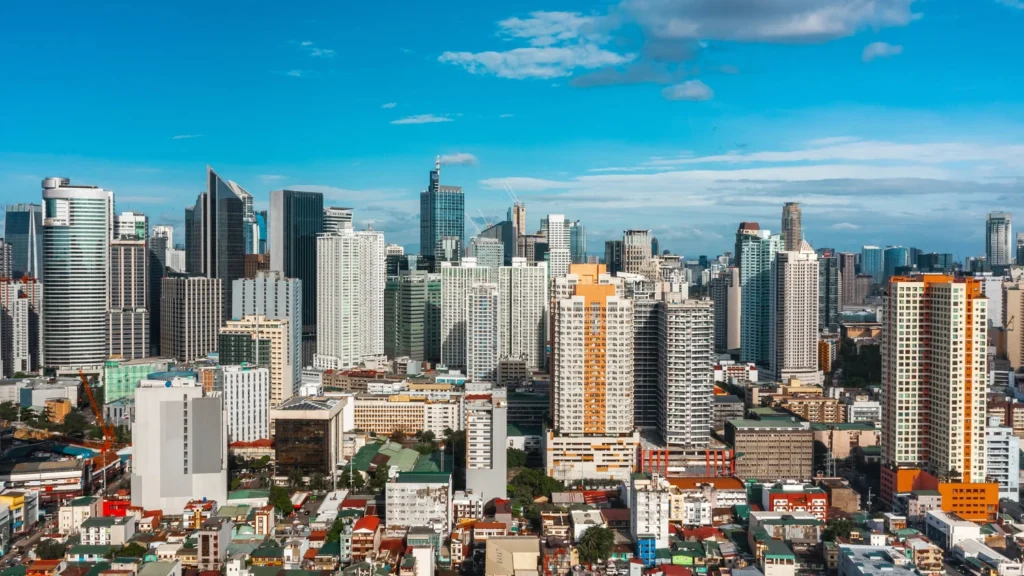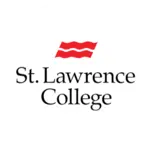Study in Phillipines

Overview
The Philippines provides a thriving academic environment with globally acclaimed universities and English-language programs, making it a popular destination for international students. The country is well-known for its inexpensive tuition costs, low cost of living, and kind hospitality, as well as its rich cultural experience and high-quality education. Strong programs in business, engineering, and medicine give students access to both academic understanding and real-world experience. Studying in the Philippines leads to personal development, academic success, and unforgettable island experiences.
Why Study in Canada?
World-class education
Canada offers globally recognized degrees and diplomas, with top-ranking universities known for academic excellence and research opportunities.
Safe & welcoming
Canada is known for its low crime rate and inclusive society, creating a safe and friendly environment for international students.
Multicultural society
Canada embraces diversity, with people from all over the world, allowing students to experience various cultures and feel at home.
Research opportunities
Canadian universities emphasize research and innovation, offering students access to cutting-edge facilities and projects across various fields.
Work & PR options
Compared to other popular study destinations, Canada offers quality education at relatively lower tuition fees, making it a cost-effective choice.
Affordable tuition
International students can work part-time during studies and full-time after graduation, with clear pathways to permanent residency through programs like Express Entry.
High living standards
Canada consistently ranks high in quality of life, offering excellent healthcare, infrastructure, and a clean environment for a comfortable student life.
Affordable tuition
From mountains and lakes to forests and coastlines, Canada’s stunning natural beauty offers students endless opportunities for travel and outdoor adventures.
Study in Phillipines
Affordable education
English as the medium of instruction
Globally recognized medical programs
Cultural diversity and warm hospitality
Tropical lifestyle with rich natural beauty
QUALIFICATIONS OFFERED
- First Professional Degree
- Diploma
- Associate Degrees
- Applied Degrees
- Bachelor’s Degree
- Master’s Degree
- Doctorate
TEST REQUIREMENT
- TOEFL or IELTS scores as a proof of English proficiency. Depending upon the institution, the score requirements may vary between 80-100 for TOEFL and 6.0 – 7.0 bands in IELTS.
- For MBA admission a good score in GMAT is required.
EDUCATION COST
TUITION COST
- Diploma & Advanced Diploma Courses cost range from CAD$11,000 – CAD$13,000 per year depending on the course.*
- Bachelor’s Degrees cost range from CAD$13,000 – CAd$19,000 per year for most under-graduate degrees*
- Post-graduate Degrees cost ranges from CAD$12,000 and ranges up to CAD$22,000*
* Fees given are of informative nature may vary from university to university
TUITION COST
Approximately CAD 10000 for 1st year.
WORK RIGHTS & STAY BACK POST STUDY
TUITION COST
- Part time work right : Off campus 20 hours per week – 40 hours per week during vacation
- No limit for on campus work
- Upto 3 years stay back for ( 2 years study )or equal to the course duration if it is less than 2 years
INTAKE
- January
- May
- September
Universities















The Philippines is a desirable location for overseas students due to its excellent educational system, which combines native and American influences. The nation is renowned for its excellent programs in business, engineering, nursing, and medicine. Major university admissions usually take place in November. Since English is the main language of instruction, international students have no trouble integrating socially and academically.
Canadian universities offer three main intakes for international students: January, May, and September.
The Philippines’ principal language of instruction is English, making it an accessible location for overseas students. While most undergraduate and postgraduate programs are taught in English, fluency in the language is necessary. Universities may require non-native English speakers to obtain a minimum score on standardized examinations such as the TOEFL or IELTS. However, some universities may provide alternative language support programs for students to improve their English skills before beginning their degree courses.
Understanding the Canadian Education System
Canada’s education system provides a varied selection of programs through universities, colleges, and technical institutes, catering to students with a variety of employment goals. An exceptional aspect of the Canadian educational system is its focus on experiential learning, which enables students to obtain practical experience through research partnerships, co-ops, and internships. Additionally, the nation offers overseas students the chance to work both during and after their studies, which lowers the cost of education and focuses on careers. With a reputation for competence, inclusivity, and a solid student support system, Canada remains a popular choice for people seeking a high-quality education and potential employment opportunities.
Canadian universities offer three main intakes for international students: January, May, and September.
Language Requirements
International students need to prove English competence on standardized tests such as the TOEFL or IELTS to study in Canada. Depending on the school, the necessary scores can vary, but generally speaking, they fall between 80 and 100 on the TOEFL and between 6.0 and 7.0 on the IELTS. A competitive GMAT score is frequently needed as part of the admissions process for MBA candidates. Institutions may have particular prerequisites, therefore, students must check the qualifying criteria of their preferred program before applying.
Do you have Questions ?
Find answers to common queries about our services, processes, and policies. If you need further assistance, feel free to reach out.
1. What are the language requirements to study in the Philippines?
The main language of education in the Philippines is English. International students may be required to demonstrate English competence through examinations such as IELTS or TOEFL, depending on the university’s requirements.
2. How much does it cost to study in the Philippines?
The Philippines has reasonably priced tuition when compared to many other nations. The cost will differ based on the program and university, but it represents excellent value for the level of education.
3. What are the major intakes for universities in the Philippines?
The major intake is in November. Some universities may also offer summer classes in April.
4. Do foreign students in the Philippines have access to scholarships?
Yes, many colleges provide scholarships or financial aid to international students based on merit or need. It’s wise to check with the university’s scholarship office about specific options.
5. Is it possible to work while studying in the Philippines?
International students in the Philippines can work part-time while studying, usually in student-friendly positions such as on-campus labor. But you need a valid work permit.
6. What kinds of courses are offered in the Philippines to foreign students?
Numerous courses are available in the Philippines, particularly in areas including business, engineering, healthcare, and hospitality. Many colleges offer English-language programs to accommodate international students.
